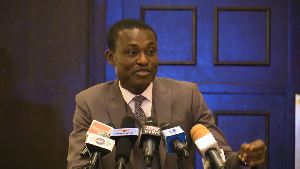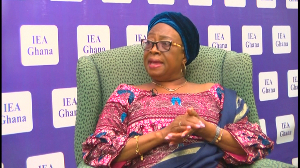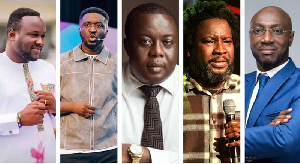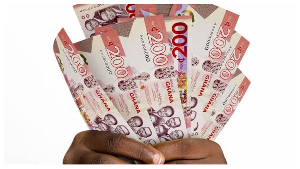At least 29 Ghanaians were among some 629 illegal migrants who were left stranded on the Mediterranean sea after Italian and Maltese authorities rejected them, Samuel Okudzeto Ablakwa, Ranking Member on the Foreign Affairs Committee of Parliament has disclosed.
The African migrants were rescued by the vessel Aquarius, operated by Doctors without Borders (MSF) and Franco-German charity SOS Mediterranee as they journeyed on a rubber inflated dinghies on the sea to Europe for greener pastures.
Mr Ablakwa who visited Valencia, Spain, where the rescued immigrants were given refuge by the Spanish authorities after Italy and Malta turned them away said in his interaction with the Ghanaians, they recounted harrowing accounts of their journey from Techiman in Ghana to Niger, then to Libya across the 9,200,000 square kilometre Sahara desert, before paying for their passage on board the dinghies from Libya to Europe via the Mediterranean Sea.
In a statement, the North Tongu lawmaker said: “They spoke to me about how extremely lucky they felt to have survived considering that majority of those they began the journey with lost their lives.
“According to them, the first casualties occurred between Niger and Libya at the hands of militias and those who could not withstand the harsh desert conditions. Another round of deaths were recorded in Libya at the hands of notorious gang leaders while a final batch perished at sea when their dinghies capsized which as they narrate is quite a common spectacle.”
Mr Ablakwa has called on government to speak on the matter and to consider “improving security at the migrant routes within our territorial boundaries.”
He tasked the National Commission for Civic Education and the Information Services Department to intensify education on the dangers of embarking on such voyage for greener pastures in Europe.
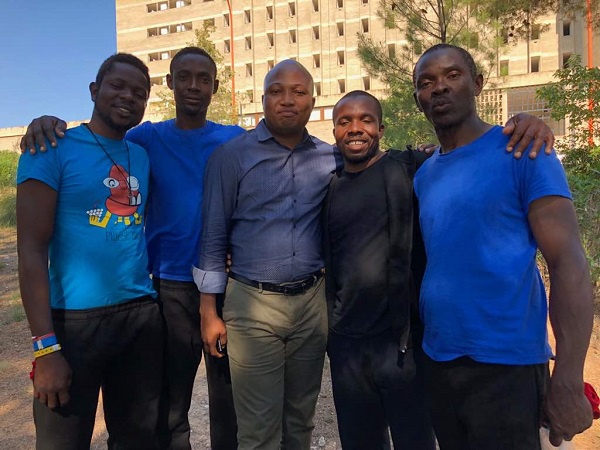
Below is Mr Ablakwa’s full statement:
AN SOS CALL FOR URGENT, OPEN AND BOLD LEADERSHIP TO END THE SILENT MASSACRE OF GHANAIAN YOUTH
Last week I embarked on a special mission to the Spanish port city of Valencia on behalf of the Minority in Parliament following credible leads from our international partners that some Ghanaian citizens may be on board the vessel Aquarius operated by Doctors without Borders (MSF) and Franco-German charity SOS Mediterranee which rescued 629 migrants off the Coast of Libya.
We do know that the vessel Acquarius was granted entry into the port of Valencia by the Spanish Authorities and became the final place of refuge after Italy and Malta turned away the migrants and thereby triggering a major diplomatic row in Europe. The timely intervention of the new Spanish Government led by Prime Minister Pedro Sanchez in permitting the vessel carrying rescued migrants to berth in Spain’s territorial waters averted what would have been a humanitarian catastrophe.
Thanks to the kind spirit of our international collaborators, I was granted access to the Complejo Educativo De Cheste where the rescued migrants were moved to from the harbour for temporary shelter, medical attention, counseling, trauma therapy, Spanish language lessons and migration interviews.
I saw what was a beehive of activity coordinated by Spanish Government officials, staff of the International Federation of Red Cross and Red Crescent Societies (IFRC), staff of MSF and an array of volunteers doing their best to offer support and hope to these migrants including 123 unaccompanied minors between ages 13 and 17, 11 younger children and 7 pregnant women.
It is unnerving to now confirm that at least 29 Ghanaians were rescued from dangerous rubber inflated dinghies on the Mediterranean Sea unto the vessel Aquarius and indeed that Ghanaians are a major part of this fatal odyssey that has so far dominated the global news media.
In my rather sombre interaction with these Ghanaian migrants, they recounted harrowing accounts of their journey from Techiman in Ghana to Niger then to Libya across the 9,200,000 square kilometre Sahara desert before paying for their passage on board these dinghies from Libya to Europe via the Mediterranean Sea.
They spoke to me about how extremely lucky they felt to have survived considering that majority of those they began the journey with lost their lives.
According to them, the first casualties occurred between Niger and Libya at the hands of militias and those who could not withstand the harsh desert conditions. Another round of deaths were recorded in Libya at the hands of notorious gang leaders while a final batch perished at sea when their dinghies capsized which as they narrate is quite a common spectacle.
I observed while I was still within the vicinity of the Complejo Educativo De Cheste that French Government officials had arrived to make good President Emmanuel Macron's promise to assist Spain in granting asylum status to some of the migrants who desire to opt for France.
The sad irony however, is that so far no African Government official has visited the camp despite the fact that this is essentially an African problem.
Even more intriguing is the fact that Europe is the only continent having a serious debate even if sometimes ugly about how to resolve this humanitarian nightmare with a crucial one-item agenda European Union mini-summit taking place just yesterday in Brussels to deliberate on a solution ahead of a full EU summit later this week.
Shockingly, there is loud silence on this matter in Africa with the issue not considered a priority item for most Governments even when official statistics indicate that as at June 6, 2018 a staggering 33,400 African migrants had poured into Europe this year alone with no accurate data on the thousands that perished. It is not clear if our silence is as a result of a certain collective quilt, complicity or the lack of a workable African solution.
That notwithstanding, lives are at stake. I am genuinely mortified - my eyes having been opened to the stark reality of the hundreds of able bodied Ghanaian youth who continue to lose their lives virtually every week as they attempt this deadly voyage.
It is not acceptable that the Akufo-Addo Government appears so far to have totally abdicated on this matter and therefore offering absolutely no leadership whatsoever.
President Nana Addo Dankwa Akufo-Addo must realise the future of our country is at stake.
It is time for Government to consider improving security at these migrant routes within our territorial boundaries. Charity begins at home, they say.
Public education on the dangers of this expedition must be vigorously mounted and well-funded. This is a task the National Commission for Civic Education and the Information Services Department should be able to perform with considerable impact.
The solution to this crisis cannot be leaving the matter to the EU to deal with or allowing far right parties from Italy, Bulgaria, Austria and Germany to dominate the discourse and build their narrow political fortunes at the expense of vulnerable African lives.
It is time for concrete action from Government. This is not the time for concealment or playing cover-up as the case appears to be. Let us be bold to open up to this issue and deal with it frontally.
Also, the human traffickers who are profiting from these needless deaths cannot be allowed a field day due to Government ineptitude and deliberate inaction. We must declare time-up for these criminal rings.
That said, even more fundamentally, sincere efforts must be made to create real economic opportunities for the Ghanaian youth beyond catchy but empty sloganeering. This must serve as a wakeup call that mere rhetoric would not resolve our nation's challenges.
It is the reason the Minority will in the coming days be demanding leadership from the Akufo-Addo Government on this crucial matter so we can all as a nation explore how to put an end to this silent massacre.
May God help us.
Samuel Okudzeto Ablakwa
[MP, North Tongu]
Ranking Member, Foreign Affairs Committee of Parliament.
General News of Monday, 25 June 2018
Source: classfmonline.com





![Okudzeto Ablakwa [2nd from right] with some of the migrants Okudzeto Ablakwa [2nd from right] with some of the migrants](https://cdn.ghanaweb.com/imagelib/pics/754/75493927.295.jpg)

